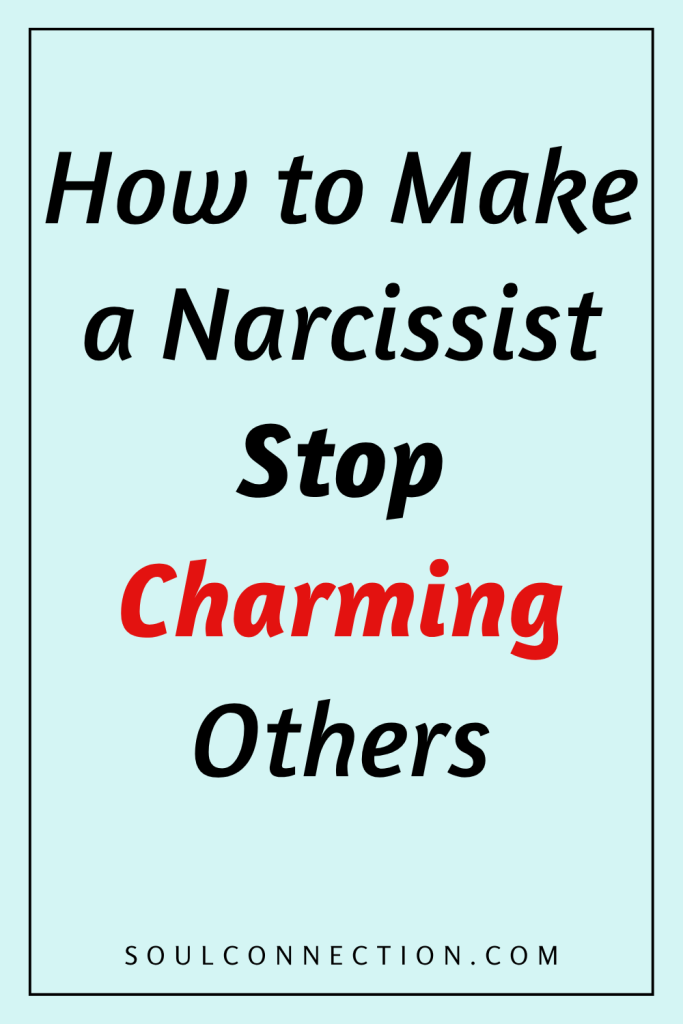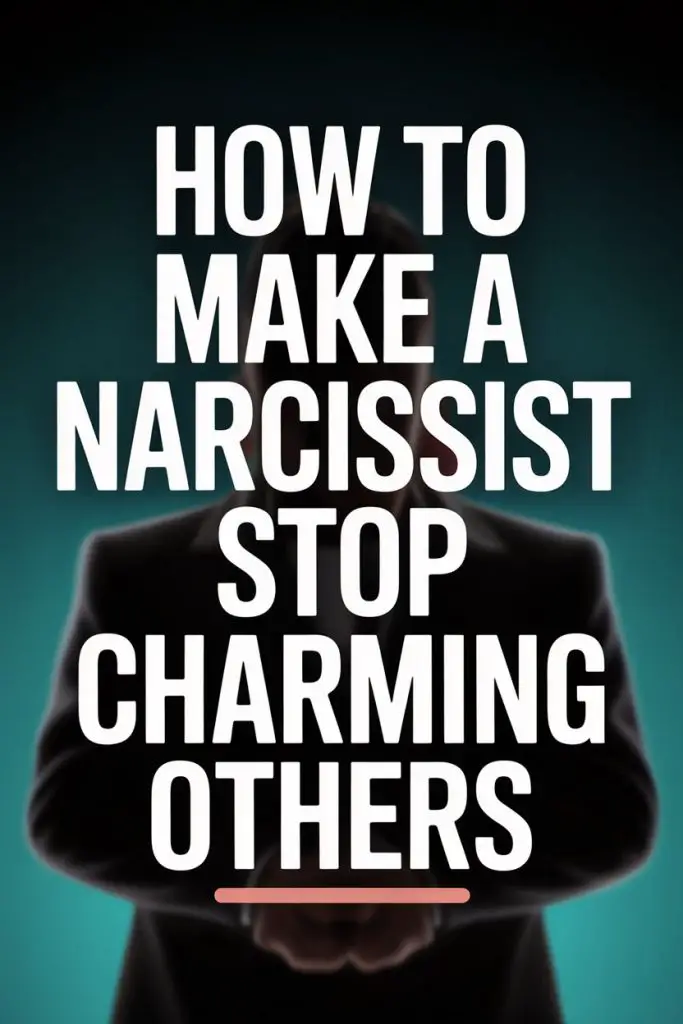People say narcissists are all mirrors and smoke, but sometimes it’s more like glitter and a megaphone.
If you’re tangled with someone who keeps dazzling the crowd, you know the headache—and the whiplash—of living with someone who could charm socks off a statue… and then act like it’s your fault for noticing.
Ever watched your partner flirt with a room, then insist they’re “just being friendly” while practically handing out autographed headshots? Welcome to the narcissist’s social circus.
Now, how do you get them to put down the juggling pins and stop acting like they’re auditioning for the lead role in everyone else’s life?
Grab your emotional popcorn. Here’s how to make a narcissist stop charming others (without needing a magic wand or a court order).
Spotting the Narcissist’s Charm Offensive
Before trying to wrestle back the spotlight, knowing what you’re dealing with helps. Narcissists don’t simply love attention—they need it like the rest of us need oxygen and caffeine.
When they walk into a party, their radar is set for new sources of applause. They’re not just making friends—they’re collecting admirers. This isn’t a harmless quirk; it’s a strategy.
Their self-esteem is as fragile as a soap bubble, and charming others is how they keep theirs afloat.
Their charm isn’t a random habit. It’s a weapon, a shield, and maybe a hobby, all wrapped in a well-practiced smile.
Why It Feels Personal (But Isn’t, Entirely)
Standing in the blast zone of a narcissist’s attention-seeking is enough to make anyone feel invisible. It can leave you wondering if you’re not shiny enough—or if you should start carrying around a foghorn just to get noticed.
Here’s the hard truth: their charm isn’t about you. (Yes, really.) It’s about their bottomless pit of validation. If they could bottle applause, they’d have a cellar full.
Still, it stings. And that’s fair. Nobody likes feeling like an understudy in their own relationship.
Setting the Stage with Boundaries
Telling a narcissist to stop charming others is like telling a golden retriever to stop wagging its tail. Possible, but you’re going to need some serious treats.
Boundaries aren’t mean; they’re necessary. (Think of them as emotional fences—white picket, electrified, whatever gets the job done.)
Have a direct conversation about what behaviors cross the line for you. Spell out what’s okay and what isn’t.
No need to give a TED Talk on empathy. Short, clear sentences will do: “When you flirt with other people, it makes me feel disrespected.”
Don’t expect instant compliance and heartfelt apologies. Expect pushback, maybe even a dramatic speech about how you’re “too sensitive.”
Stay calm, repeat yourself if needed, and keep your expectations realistic.
Stop Feeding the Attention Monster
Narcissists are like hummingbirds around a sugar feeder. Take away the nectar, and they start looking elsewhere.
Every time you react—get jealous, launch into a debate, or try to out-charm their admirers—you’re tossing more sugar in their direction. Starve the drama. When they put on a show, keep your eyes on your phone or order another coffee.
Refusing to rise to the bait (or provide extra attention) can make their antics less rewarding. This doesn’t mean playing cold or passive-aggressive. Just don’t turn their charming into a two-act play starring your jealousy.
Highlight the Value of Real Connection
Narcissists may love applause, but at the end of the day, everyone wants to feel known—yes, even the most self-obsessed among us.
Gently steer conversations toward what matters in your relationship. Point out the difference between shallow validation and actual intimacy.
If they say “everyone loves me,” try: “That’s great. But it matters more to me when you’re honest with me, not just nice to strangers.”
Is this guaranteed to spark a self-reflective breakthrough? Absolutely not. But nudging the dialogue out of the shallow end, again and again, can eventually make charm seem less rewarding than real connection.
Direct Attention to Shared Activities
If charming strangers is their cardio, it’s time to offer a new workout plan. Create opportunities for them to put their energy into something you both enjoy.
This could be anything—a weekly trivia night, yoga class, or even a shared hobby at home. The more their focus shifts from public adoration to private fun, the less oxygen their charm offensive has.
Invite them to join you in things that require teamwork, not an audience. If they start hamming it up for your friends, gently redirect: “Hey, remember when we crushed at karaoke last week? Let’s do that again.”
Subtle reminders can shift the spotlight back where it belongs.
Don’t Fall for the Guilt Trip
Push back on their boundary-busting, and watch the performance reach Oscar levels. Expect lines like, “I can’t help being friendly!” or “You’re trying to control me!”
Don’t buy it. Remind them that being friendly isn’t the issue—it’s crossing boundaries that matter to you. Guilt trips are just another way to make you responsible for their behavior.
Keep your feet planted. You’re not asking them to become a hermit—just to respect your relationship.
Address Your Own Needs
Watching someone constantly fish for compliments is exhausting. Keep checking in with yourself. What do you want? What’s non-negotiable for your sanity?
If their charm offensive leaves you feeling flatlined, speak up. Advocate for yourself—without apologizing for it. It’s not “needy” to want to feel like a priority.
If conversations with your narcissist partner go nowhere, consider whether you need space, support, or possibly professional backup. Your needs count, even in a relationship that occasionally feels like a talent show you never auditioned for.
When to Call in Backup
Sometimes, narcissists aren’t just charming—they’re manipulative or outright abusive. If boundary-setting gets you nowhere, or if you’re being gaslit for daring to have feelings, it might be time to bring in a third party.
Therapists make a great neutral zone. Suggest couples counseling if your partner is open to it (miracle of miracles, but hey, sometimes it happens). If not, go for yourself.
Therapy isn’t about “fixing” the narcissist; it’s about figuring out what you’re willing to tolerate—and what you’re not.
If you ever feel unsafe, trust your gut. Everyone deserves to be more than just a backdrop in their own life.
Closing the Curtain on the Narcissist’s Sideshow
So, can you make a narcissist stop charming others? Probably not with an inspirational speech.
But you can take away the fuel, draw your boundaries in permanent marker, and remind yourself what you want from a relationship.
If your partner refuses to stop turning every room into their personal fan club, you get to decide if that’s a show you want to keep watching.
Spotlight on you, for a change. Don’t be afraid to take your bow.


